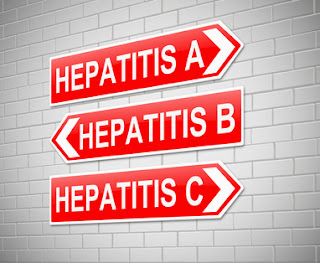 In
a world where everyone lives their lives differently from the next, you might
find yourself sometimes surrounded by individuals who unbeknownst to you may
have poor hygiene habits. The even scarier idea is that sometimes these kinds
of people work at places where they touch and serve food. Even with protection
such as gloves or head, it is still not a guarantee that what you eat outside
is completely pure.
In
a world where everyone lives their lives differently from the next, you might
find yourself sometimes surrounded by individuals who unbeknownst to you may
have poor hygiene habits. The even scarier idea is that sometimes these kinds
of people work at places where they touch and serve food. Even with protection
such as gloves or head, it is still not a guarantee that what you eat outside
is completely pure.
Hepatitis A, as with other
illnesses, can be spread in this manner. It is an infectious disease of the
liver that though is not fatal in 95.5% of all cases, it can leave an
individual with nausea, vomiting, fatigue, severe fever, dark urine, and
permanent damage of the liver that can require transplant. It can be spread
through contaminated food and water that contains traces of feces that contain
the virus. An individual with poor hygiene is more prompt to spread it than one
who has great hygiene. It has been known that the virus is most prevalent in
poor hygiene regions.
In the media, we have seen this as
one of the causes of Hepatitis A. In 2003, an outbreak occurred in the United
States in Ohio and West Pennsylvania. More than 640 people were infected and
three of the cases became fatal. Tainted green onions that were used at a
restaurant in Monaca, Pennsylvania were blamed as the source and origin of the
outbreak. Last month there was another outbreak that took place in 8 states as
a result of contaminated frozen berries. About 118 people were infected with
the virus. The berries were revealed to have come from the United States,
Argentina, Chile, and Turkey. It is possible that the people who handled the
berries before being transported to factories were already infected with the
virus or it could have been transmitted by infected flies. Flies feed on feces
and if the fecal matter is that of an infected individual, the fly can become
contagious.
Could poor hygiene be the number one
reason for the spread of Hepatitis A? No, but it is one of the prime reasons
for the spread of the disease. Most high-income regions have low endemic levels
while those that are low-income regions are known to have higher endemic levels
probably in part due to lack of access to resources for combating the spread,
proper sanitation, and lack of proper disposal of sewage in communities. The
higher the income is in a region, the better the conditions are to afford
proper healthcare, sewage disposal, and purification of water. Regions with
high endemic levels have been reported to have cases where most children become
infected before the age of 10. Surprisingly though, symptoms in children are
not as severe as in adults and have been reported to be mild lasting between
1-3 weeks according to a report by the National Center for Biotechnology
Information (NCBI). If a child recovers from infection, they can develop
lifelong immunity.
Nevertheless, vaccination is highly
recommended for travelers to take at least two weeks before traveling to a
region where the disease is endemic. There is no specific treatment, but the
vaccine can help prevent infection. At minimum, antibody responses can show
within 12 days after taking a shot and at most about 4 weeks. The vaccine
should not only be considered by travelers, but for people who live their day
to day life as well. Outbreaks occur sometimes without warning, even here in
the United States. Even after exposure to the virus, a single dose of the
vaccine has protective effects even two weeks after exposure. However,
manufacturers recommend two vaccine doses to increase the antibody levels for
longer-term protection.
Millions
of people worldwide have been vaccinated with no serious side-effects. The
vaccine can also be given as part of regular childhood immunizations. If you are in New York City considering taking the Hepatitis A vaccine, especially if you are traveling outside of the United States, for information visit us at our website at www.travelclinicny.com or call
us at 212-696-5900 to schedule an appointment.

